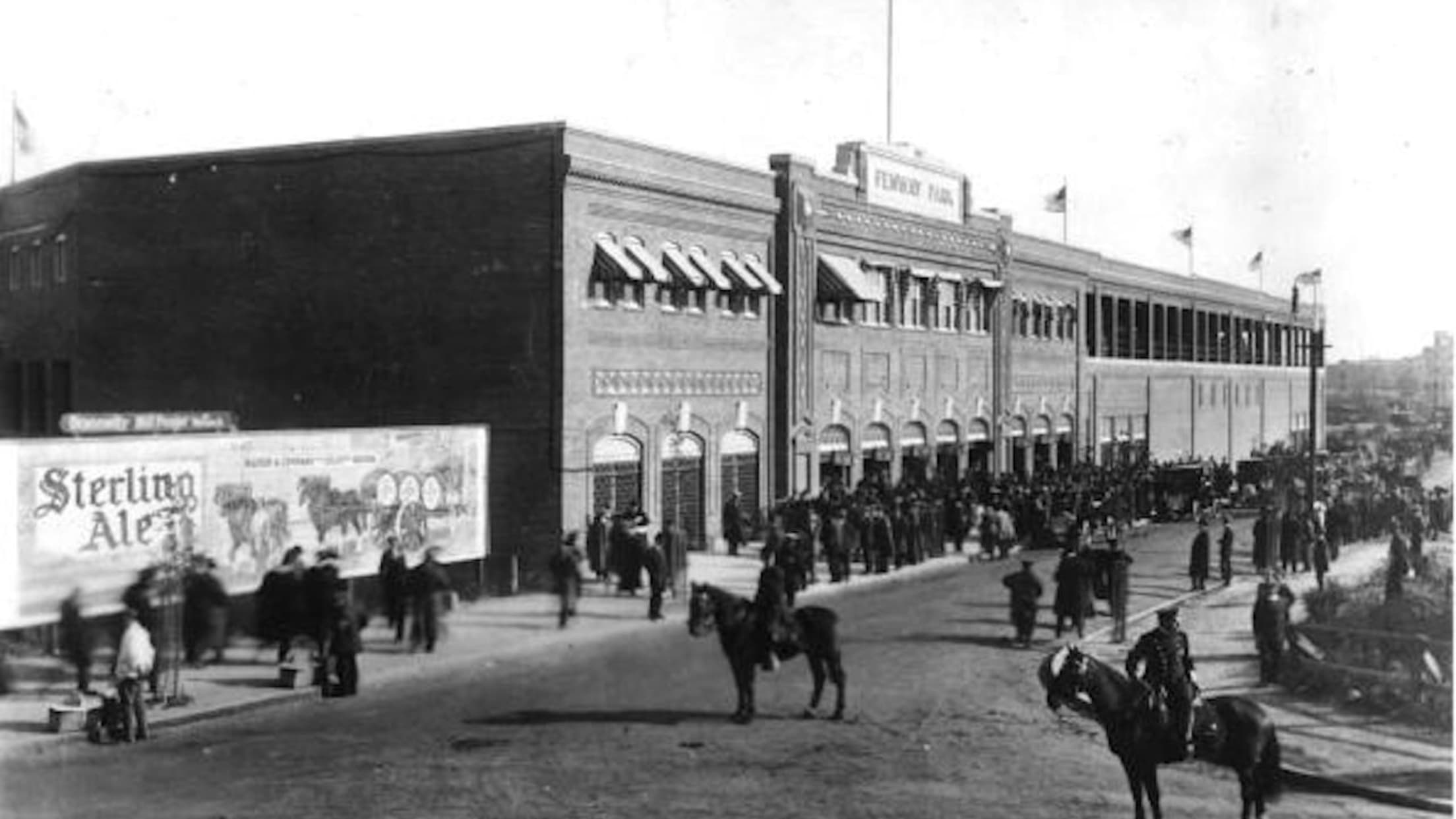What are the five best moments in the 106-year history of Fenway Park?

In 1911, Red Sox owner John Taylor was looking for a change of scenery. The Huntington Avenue Grounds were charming but a bit ramshackle -- patches of sand in the outfield where grass wouldn't grow, a shed in deep center field that was amazingly still considered in play. So, he bought a plot of land on Landsdowne Street in Boston's Fenway neighborhood -- the block was a bit irregular, but they could make the dimensions work -- and began building a ballpark.
A year later, construction had wrapped, and Taylor was ready to introduce his brand new stadium to the world: On April 9, 1912, the Red Sox played an exhibition against Harvard College in the first game in Fenway Park history.

The Red Sox topped the Crimson that day, then won 105 games during the regular season en route to a World Series title -- and the park hasn't stopped producing baseball history ever since. Now, in honor of its 106th birthday, let's run down the five best moments in Fenway Park history, presented in chronological order.
Ted Williams' final at-bat
Entering play on Sept. 28, 1960, the Red Sox sat at 64-86, seventh place in the eight-team American League and a full 29 games back of the first-place Yankees. But 10,454 fans braved blustery weather to take in Boston's home finale against the Orioles that day, for one simple reason: It was Ted Williams' last game at Fenway Park.
The Splendid Splinter had already announced his intention to retire at the end of the season, his 19th with the Red Sox. And because he was Ted freakin' Williams, he went yard in his final at-bat:
Carlton Fisk's homer
Things looked bleak for Boston in the 1975 World Series, trailing the Reds by two in the bottom of the eighth inning of a do-or-die Game 6. But pinch-hitter Bernie Carbo swatted a game-tying homer to send the game to extras, and you probably remember what happened next:
The 1999 All-Star Game
First, the NL and AL rosters were introduced. Then it was time for the All-Century team, legends like Hank Aaron and Willie Mays. Finally, out came Carl Yastrzemski and Carlton Fisk, two of the greatest Red Sox ever, to throw out the ceremonial first pitch. A perfect scene at the final All-Star Game of the 20th century -- but there was one surprise left in store.
"Ladies, gentleman and children," the PA announcer boomed, "it is an honor and a privilege to introduce one of the greatest players to ever grace the field at Fenway Park and any other ballpark. Ladies and gentleman, the great Hall of Famer, Ted Williams."
A golf cart emerged from under the center-field stands, and there sat Williams, arguably the greatest hitter of all-time, making his first public appearance in years at age 80. After taking a lap around the field to a standing ovation, the Splendid Splinter made his way to the mound to throw out the first pitch -- where he was met by a mob of baseball greats past and present.
"They asked everyone to go to the dugout, and we're like, 'No, we're not," Nomar Garciaparra later recalled. "It was like, 'Who cares about the game?' It was a special moment that no one expected. We didn't want to it to end."
After a solid 15-20 minutes, the players dispersed -- and then it was Pedro Martinez's turn to steal the show:
Martinez struck out five of the six batters he faced in his two innings of work, including Barry Larkin, Larry Walker, Sammy Sosa and Mark McGwire all in a row.
The Steal
It didn't seem like all that much at the time -- the Red Sox still trailed the rival Yankees three games to one in the 2004 ALCS, a supposedly insurmountable hole. But every comeback has to start somewhere, and in Boston's case, it was a seldom-used and little-known pinch-runner who lit the spark:
Bullpen Cop
In hindsight, it all seems so predictable. David Ortiz, in October, with the bases loaded and his team's back to the wall, striding to the plate as the potential tying run -- of course he was going deep. How could he have done anything else? Bullpen Cop, on the other hand, was a delightful surprise:
Have any great Fenway moments you think should have made the cut? Be sure to let us know @Cut4.










